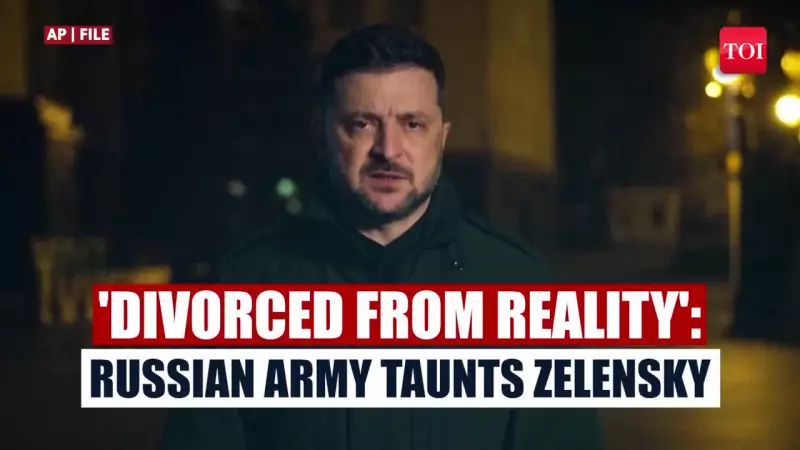
In a blistering verbal offensive that marks a significant escalation in rhetoric, Russian authorities have launched a scathing critique against Ukrainian President Volodymyr Zelensky, accusing him of being completely disconnected from the harsh realities of the ongoing conflict.
The Russian government didn't mince words, characterizing Zelensky as "divorced from reality" and leveling serious allegations about his leadership during these turbulent times. This verbal assault comes amid intensifying battles across multiple frontlines in Ukraine.
Dire Warning for Ukrainian Forces
Adding to the grim pronouncements, Russian officials issued a chilling caution regarding the fate of Ukrainian military personnel. They explicitly warned that Ukrainian troops face certain "doom" in several contested regions where they find themselves strategically trapped.
This stark language suggests Moscow believes Ukrainian forces are in increasingly vulnerable positions, potentially surrounded or cut off from supply lines in key battle zones. The warning implies that Russian military strategists see these situations as increasingly untenable for Ukrainian defenders.
Escalating Diplomatic Confrontation
The sharp exchange represents more than just military posturing—it signals a deepening diplomatic rift between the warring nations. By directly attacking Zelensky's perception of reality, Moscow appears to be challenging the Ukrainian leadership's credibility and decision-making capabilities at the highest level.
This type of personal criticism directed at a head of state marks a significant intensification in the war of words that has paralleled the physical conflict. The language suggests Russia is attempting to undermine Zelensky's position both domestically and internationally.
Regional Implications
The timing and tone of these statements indicate potential preparations for renewed military offensives or psychological operations aimed at demoralizing Ukrainian forces. The specific reference to "trapped Ukrainians" likely refers to pockets of resistance in eastern Ukraine where fighting has been particularly intense.
As the conflict continues to evolve, such stark warnings and personal attacks typically precede significant military developments, making this exchange particularly noteworthy for international observers monitoring the situation.





